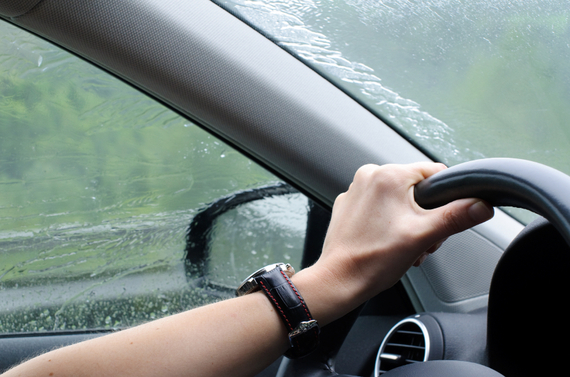As with the beginning of each new year, the word "improved" gets bandied about: improved patient care, improved patient satisfaction, improved efficiency. Physicians are constantly being told to push past their burnout and embrace multitasking for the sake of improved health care delivery. Patients are told to "hurry up and wait" as they line up for health care like lemmings on the top of a cliff.
In a world in which the new normal sees physicians and hospitals judged and reimbursed based on patient satisfaction, the goal of "improvement" is paramount. Yet how can worn out physicians make patients happier when they are not so happy themselves?
reveal that the multitasking we all do is actually bad for us. Turns out, trying to chew gum and walk -- or think about how we are going to perform surgery while we drive to the hospital -- may not only be harmful to our health but also to patient care.
In my office, where I see patients every day, we're discovering that multitasking may be harmful to patient satisfaction too.
By now, most patients have been exposed to electronic medical records and the "advancement" of this medical practice around the country. They've witnessed firsthand how physicians have had to give up face-to-face interaction while "advancing" the delivery of health care.
What are patients saying about today's health care, behind the closed doors of doctors' exam rooms, where private conversations about health and harm are still allowed and, in fact, encouraged?
What do patients and doctors agree on, when it comes to burnout?
My patients are saying they feel "secondary."
Oh, how my heart grows heavy when I hear that.
Because if medicine is nothing else, it must be "primary" when it comes to medical care.
Our patients are not secondary.
. They are why good doctors are still getting out of their warm beds at two in the morning to go to the emergency room to see patients in pain. They are why we spend the end of our long days calling in consultations for specialists or reading over a new journal article that may help in treating our patients.
Isn't patient care what health care is all about?
Or have we lost our way so completely that the big companies are now in charge of that too?
Is it now more important to know about the magic potion advertised by the pharmaceutical company on last night's television advertising than to know what our patient really needs to feel better?
Is it more important to multitask and make sure that the correct boxes are checked on the patient's bill prior to sending it to the insurance company than it is to take one more listen to their chest and make sure that the breath sounds on the right really are not decreased?
Is it more important to make sure we extend outside our knowledge and comfort zone to be able to clock in some "robotics" procedures so that our hospital staff privileges can be extended, whether the patient really needs robotics or not?
Who are we treating, after all?
The insurance companies? The pharmaceutical companies? The government?
Whether we're doctors, nurses, med students, or health professionals in other arenas, I can tell you that we went into this for the patients. Someone along the way touched our hearts and our souls and we decided that nothing else but helping patients would put the fire in our bellies.
Now that we need to ask repetitive, unhelpful questions of our patients at every encounter, it's no wonder they're feeling out of sorts. They've trusted us over the years to guide them. And now, we as health professionals are sometimes rudderless.
Picture this scenario: You're driving in the dark on a busy interstate in an unfamiliar area. The rain is pouring down. Your cell phone rings and you pick it up. Your child has a math test tomorrow. He really needs your help so he can continue to study and do well on his test.
You're driving. You're navigating the difficult path home. And you're also guiding your child through the myriad of math questions that he's throwing at you. You do all this while dodging wacky drivers and road detours.
That may give you the tiniest bit of an inkling of how we medical folks feel every single day, navigating though the highways of today's health care system.
Let's slow down.
Let's drive away from physician burnout and patient disillusionment.
Let's drive away from a world in which multitasking on a busy health care highway is just plain dangerous.
Let's drive toward bringing patients and health care professionals together to heal us all.
Starla Fitch, MD, author of the #1 Amazon international best-seller , is the creator of the hugely popular international online community for doctors, nurses, other health care providers, and patients who want to restore humanity to health care. Dr. Fitch speaks to audiences around the world on The 4 Steps from Burnout to Balance. She is an oculoplastic surgeon and senior partner in practice in Atlanta. To follow Dr. Fitch and get free weekly stress-busting tips and inspiration, sign up for updates . You can also connect with her on , , and .
